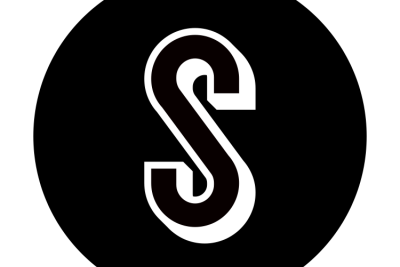Seattle University’s Black Student Union Zoom-Bombed, Reflecting a Pattern of Racist Digital Attacks

Seattle University’s Black Student Union (BSU) was Zoom-bombed Feb. 9, attacks that have been employed by online racists since the beginning of the COVID-19 pandemic. In the days since, Seattle U has begun an internal investigation of the matter and the FBI has been contacted.
The BSU is currently raising funds for a $200,000 endowed scholarship for Black students at Seattle U. The meeting was for Black students and allies to come together and discuss Black History month and the fundraiser for the scholarship.
Five minutes into the meeting, multiple unknown, white Zoom-bombers filled the call as they began saying racial slurs and attacks. The BSU released a statement following the attack:
“This was truly a horrific experience for every member of BSU and its allies. We shouldn’t have to sacrifice welcoming non-SU allies into our brave, safe space out of fear of a hate crime,” the statement read.
This is not the first time this academic year that a Black Student Union at a Jesuit university in Washington State has been digitally assailed by racists. In Nov. 2020, Gonzaga University’s BSU was Zoom-bombed, triggering investigations by the Spokane Police Department and FBI, as well as various statements from Spokane City Council members.
Charles Cerisier, a third-year forensic science student, is a regular attendee of BSU meetings and was present at the meeting. Cerisier underscored the systemic nature of racism in America, which is reflected in the pattern of Zoom-bombings which have occured over the past several months.
“The problem is not black and white, the problem is whiteness. Not all white people are racist, I know that from the bottom of my heart. I have some incredible white friends who share my values and are there with me on the front-line,” Cerisier said.
He emphasized that most white people are not racist, but that white privilege pervades society in a way that makes the Black experience fundamentally different.
“As a Black man, I have to watch my back each time I leave my house. I have to drive extra careful on the freeway—and even still, it’s not enough,” Cerisier said.
Executive Director of Seattle U Public Safety, Craig Birklid, described the steps being taken by the university to respond to the Zoom-bombing in a written statement.
“The university is investigating the incident. In addition, the incident was reported to the Seattle Police Department and reported to the FBI,” Birklid said.
The response mirrors the actions taken by Gonzaga U following the digital attack on their BSU in November, as well as the standard institutional response to displays of hate on campus. Initial investigations point toward the Zoom-bombers being individuals unaffiliated with Seattle U.
“These types of incidents are damaging to the community and those directly targeted. It is behavior that is antithetical to Seattle U’s core belief and mission. The preliminary information as I understand, points this incident toward persons not affiliated with Seattle U or in the Seattle area. That is still being investigated,” Birklid said.
The day after the incident, President Fr. Stephen V. Sundborg, S.J. released a statement to the campus community condemning the attack. In addition to describing the university’s response to the event, he called on consistent efforts to make Seattle U an inclusive learning environment.
“It is on each and every one of us to stand with and affirm our Black, Indigenous and People of Color (BIPOC) community at Seattle U—especially in times like these, yes, but always. There is nothing we do as an institution that is more fundamentally important than valuing the dignity and worth of all members of our university family,” Sundborg said.
Provost Shane Martin encouraged students to create secure Zoom meetings, but recognized that these efforts must be paired with anti-racist action to create a more just community and society.
“This is where both educational efforts and bias prevention efforts are really critical. Under the leadership of Vice President Natasha Martin, Seattle U has launched our Lift SU initiative,” Martin said.
The Lift SU initiative is an effort launched by the Office of Diversity and Inclusion which seeks to “drive institutional change toward racial equity.” The document outlines goals for the 2020-2021 academic year to move Seattle U towards a more active anti-racist position.
“These efforts are an attempt to address issues of long standing systemic racism,” Martin said.
Cerisier described the experience of Black Seattle U students studying in spaces in which they are the only students of color, and the way systemic racism makes academic spaces more difficult to navigate for Black students. He stressed the need for long-term action to ensure racist attacks like the one that occurred Feb. 9 do not happen again.
“If there is nothing being done, it will unfortunately happen again and it’s going to be a vicious cycle; it happens again, we talk about it, we don’t fix it, it happens again,” Cerisier said.
The BSU scholarship is currently fundraising for it’s $200,000 goal, and is one such way to actively contribute to anti-racism at Seattle U. The Third Annual BSU Showcase is occurring Feb. 19, and donations from the event will also contribute to the scholarship. Vice President for Diversity and Inclusion, Natasha Martin, described the BSU’s fundraising efforts in a written statement.
“It is important to acknowledge the leadership of the Black Student Union (BSU) in this endeavor. I’m honored to be in partnership with the BSU to grow this newly endowed scholarship. This is the first endowed scholarship of its type led by students,” Martin said.
Seattle U’s Black student population, which makes up 5% of the undergraduate population, is not new to experiences of systemic racism. However, the recent racist Zoom-bombing of the BSU has the potential to educate and motivate white students about the importance of anti-racist action, and empower campus leaders to institute further change to create a more just campus community.










